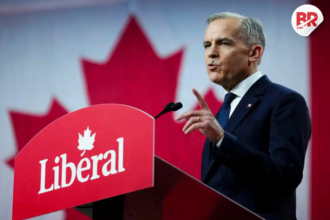
The recent Pahalgam attack in Jammu and Kashmir shook the region and the nation. A group of terrorists ambushed a bus carrying Indian security personnel in the tourist hotspot, leaving several dead and many injured. The tragic incident reignited fears about security in Kashmir and drew reactions from global leaders.
One of the most surprising comments came from former US President Donald Trump. When asked about the situation, he said, “India, Pakistan will figure it out, one way or another.”

It was classic Trump—short, blunt, and open to interpretation.
What Does It Mean for the Average Person?
For many Indians, especially the diaspora living in the US, Trump’s comment may seem vague or even dismissive. But it’s also familiar. Trump has a history of playing the outsider mediator—just enough involvement to grab headlines, but not enough to get tied down.
For people in the Kashmir valley, however, these aren’t just political statements. They’re reminders that their lives often hang in the balance of international diplomacy. And for Indian-American voters? This might just be part of Trump’s subtle game plan for the 2025 elections.
Also Read Pahalgam Attack Sparks Unprecedented Show of Patriotism from Hyderabad Muslims
The MAGA-Modi Equation
Let’s not forget: Trump and Indian Prime Minister Narendra Modi shared a visible bond during Trump’s presidency. The “Howdy Modi” rally in Houston (2019) and “Namaste Trump” in Ahmedabad (2020) were more than handshakes—they were stage shows for the Indian-American vote.
Roughly 28% of Indian-Americans supported Trump in 2020, according to the Asian American Voter Survey. That’s significant for a demographic that traditionally leans Democrat. Source: Moneycontrol
Now, with another election looming, Trump might be subtly signaling support for India without sounding too aggressive. A tightrope walk, especially when tensions with Pakistan are involved.
But What About Pakistan?
Interestingly, Trump also tried to build rapport with Pakistan’s then-Prime Minister Imran Khan. In 2019, he called him a “great leader” and even offered to mediate the Kashmir dispute—an offer India firmly rejected. Source: White House Archives
So his recent statement isn’t just about India. It’s a balancing act—keeping both sides guessing, staying in the news, and avoiding blame.
Also Read Global Shock After J&K Ambush: UN Security Council Draws a Red Line
India’s Next Steps
Back home, India has tightened security in Kashmir and launched investigations into the Pahalgam attack. Forces have increased patrols, especially in tourist zones. Intelligence networks are on high alert.
There’s also growing public pressure on the Indian government to respond firmly. But officials have avoided hasty retaliation so far, focusing instead on gathering evidence and building international support.
Also Read Shah’s Order: Deport All Pakistanis — India’s Boldest Security Move in Decades
The Bigger Picture
Trump’s comment may seem throwaway, but it comes at a politically sensitive moment. His team knows that Indian-American voters are watching. And every comment counts in an election year.
So is Trump playing the “India card”? Maybe. He doesn’t need a clear strategy—just a clever soundbite. In Trump world, diplomacy is theater. And Kashmir is the latest act.
As for India and Pakistan? The path to peace remains rocky. But incidents like the Pahalgam attack serve as grim reminders that dialogue, however difficult, is better than detonation.












